7 – 9 April, 2021 | xʷməθkʷəy̓əm (Musqueam) Traditional Territory
Storytelling as Research:
Unsettling the Cultural Politics of Diversity through Filmmaking
◢ Biographies ◣
Christina Clark-Kazak (uOttawa)
Christina Clark-Kazak is Associate Professor, School of Public and International Affairs, President of the International Association for the Study of Forced Migration and immediate past Editor-in-chief of Refuge: Canada’s Journal on Refugees. She has previously worked for York University, Saint Paul University, the Canadian government and the Coalition to Stop the Use of Child Soldiers. She has also served as President of the Canadian Associate for Refugee and Forced Migration Studies, Director of York University’s Centre for Refugee Studies and Associate Principal (Research and Graduate Studies) at York’s bilingual Glendon campus. Her work is published in books and articles in international migration and development. She has received continuous research funding since her doctorate from the Canadian and British governments and non-governmental organizations. More information.
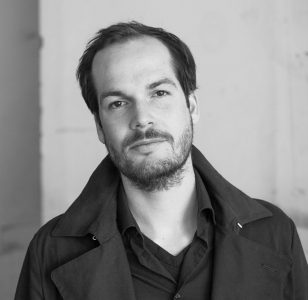
Max Czollek
Max Czollek is a German lyric-poet, writer and stage performer. In 2009 he became a founding member of the “G13” authors’ collective. Since 2013 he has worked as the German curator for the Babelsprech project aiming to establish a cross-national network among young German-speaking poets. In 2016, he co-organized the event “Desintegration. Ein Kongress zeitgenössischer jüdischer Position” at the Maxim Gorki Theater in Berlin. He has been invited to various festivals, among them the Zeitkunst Festival, the Meridian Czernovitz, the Internationales Lyrikfestival Basel, and the Poesiefestival Berlin. His own publications include “Overcoming the Present“ (Gegenwartsbewältigung, Hanser 2020), Desintegriert Euch (Hanser 2018), A.H.A.S.V.E.R (Verlagshaus Berlin 2016), Jubeljahre (Verlagshaus Berlin 2015), and Druckkammern (Verlagshaus Berlin 2012). With G13, Czollek published Das war Absicht (SuKuLTuR, 2013) and 40% Paradies. Gedichte des Lyrikkollektivs G13 (Luxbooks, 2012). In 2015, Czollek co-edited an anthology of young German-speaking poets Lyrik von Jetzt 3: Babelsprech (Wallstein Verlag). Recently Czollek collaborated with the Maxim Gorki Theater to create the film, The Best Supper: From the Bubble to the Charts (2020), as part of the Festival of Jewish-Muslim Hegemonic Culture. He is also the co-creator, alongside Mohamed Amjahid, of an ongoing Goethe Institute event series titled Radical Diversity.

Erin Goheen Glanville (UBC/SFU)
I am interested in the role of imaginative narratives in refugee studies. My research focuses on developing a cultural refugee studies approach to research with the community, media-making, and pedagogy. I recently completed a Social Sciences and Humanities Council Postdoctoral Fellowship in the School of Communication, “Digital Storytelling as a Method for Critical Dialogue on Refugees in Canada” (Simon Fraser University, 2017-2019). This project developed a critical media-making praxis and included video-recording cross-sector interviews and working with an animator to produce educational media. The project’s media outputs will be disseminated through an interactive web site, and I continue to do community education work as the opportunity arises. I am the editor of Countering Displacements: The Creativity and Resilience of Indigenous and Refugee-ed Peoples (2012). Other publications include: “An Intermedial Pedagogy for Sensing Communities of Shared Fate at the Border” (Intermedialities 2020), “Refracting Exoticism in Video Representations of the Victim-Refugee” (Crossings 2018), “R2P and the Novel: The Trope of the Abandoned Refugee Child” (GR2P 2018), and “Rerouting Diaspora Theory with Canadian Refugee Fiction” (Routledge 2009). More information.

Markus Hallensleben (UBC)
Markus Hallensleben is an Associate Professor in the Department of Central, Eastern and Northern European Studies, Affiliated Faculty Member of the Institute for European Studies, and Steering Committee member of the Center for Migration Studies at the University of British Columbia, Vancouver (Canada). As founder of UBC’s Narratives Research Group and as part of one of his current research projects, Migration as Core Narrative of Plural Societies: Towards an Aesthetics of Postmigrant Literature (funded by SSHRC), he recently organized an online conference on Postmigrant Aesthetics: How to Narrate a Future Europe?. Forthcoming are among other titles “Towards an Aesthetics of Postmigrant Narratives: Moving beyond the Politics of Territorial Belonging.” Postmigration: Art, Culture and Politics in Contemporary Europe. Eds. Anna Meera Gaonkar et al. transcript: Bielefeld, 2021; “Portraying the Refugee as a Transitional Figure of Plurality: The Performance of Gender and Ethnicity in the Post-Migrant Narratives of Abbas Khider’s Der falsche Inder [The Village Indian] and Ohrfeige [Slap in the Face].” Abbas Khider. Eds. David Coury and Karolin Machtans. Peter Lang Oxford, 2021. Contemporary German Writers and Filmmakers, vol. 5. More information.

Peter Klein (UBC)
Peter W. Klein is an Emmy Award-winning journalist and full professor at the School of Journalism, Writing, and Media. He is executive director of the UBC Global Reporting Centre, and was director of the school from 2011 to 2015. He is also a faculty associate at the UBC School of Public Policy and Global Affairs.
Klein runs the Global Reporting Program, a year-long course in which he works with master’s journalism students from UBC and other universities worldwide to study and practice global reporting. This course grew out of the decade-long International Reporting Program, in which School of Journalism students traveled around the world to work with news organizations including The New York Times, Toronto Star, The Guardian, PBS Frontline, Vice News and Al Jazeera, producing documentary projects that have won awards from most of the major news organizations including the National Academy of Television Arts & Sciences (Emmy for Best Investigation), Society of Professional Journalists (Sigma Delta Chi), Radio Television Digital News Association (Edward R. Murrow), International Academy of Digital Arts and Sciences (Webby Honour), the Online News Association (OJA), Editor & Publisher (EPPY), Canadian Association of Journalists (CAJ), Digital Publishing Award, and Canadian Online Publishing Award.
At the Global Reporting Centre, Klein oversees long-term investigative reporting projects, including Hidden Costs, a SSHRC Partnership-funded initiative that uses data, field reporting, academic research and artistic exhibits to examine the hidden costs of global commerce. He was co-investigator on a CIHR-funded project looking at expensive drugs for rare diseases, through which he and his students produced Million Dollar Meds, an award-winning multimedia documentary, as well as a CBC Ideas episode. More information.

Robert Knight (Hamilton College)
Robert Knight explores the relationship between contemporary culture, architectural space and communities using photography, video, audio, and installation. Knight’s projects have been exhibited nationally and internationally, including at the Danforth Museum of Art in Massachusetts, Jen Bekman Gallery in New York, the LaGrange Museum in Georgia, The Bascom in North Carolina, the Houston Center for Photography in Texas, and at photography festivals in Nantes, Le Mans and Arles, France. His work has been the subject of recent solo exhibitions at Gallery Kayafas, Boston, MA, the Munson Williams Proctor Art Museum, Utica, NY, the Wellin Museum of Art, Clinton, NY, and the Dowd Gallery at SUNY Cortland. His art is in the collection of the Museum of Fine Arts, Boston, and numerous private collections. Knight received an MFA in photography from the Massachusetts College of Art & Design and a BA in architecture and economics from Yale University, and is currently an associate professor of art at Hamilton College in Clinton, NY. More information.
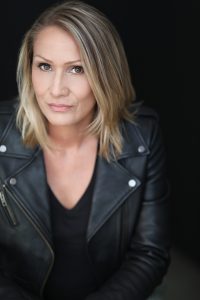
Jules Arita Koostachin (UBC)
Born in Moose Factory Ontario, Jules Arita Koostachin was raised by her Cree speaking grandparents in Moosonee, and also with her mother in Ottawa, a warrior of the Canadian Residential school system. Jules is a band member of Attawapiskat First Nation, the Ancestral lands of the MoshKeKo InNiNeWak. She currently resides in Vancouver where she is a PhD candidate with GRSJ at the University of British Columbia, defending her thesis/dissertation MooNaHaTihKaaSiWew: Unearthing Spirit in the spring of 2021. In 2010, she completed her masters at Ryerson University in Documentary Media where she was awarded the Award of Distinction for her thesis work, as well as the Graduate Ryerson Gold Medal for highest academic achievement. While in graduate school, she produced her first feature documentary film Remembering Inninimowin regarding her journey of remembering Cree. After graduation, Jules was one of six women selected for the Women in the Directors Chair program at the Banff Center, where she directed a scene from her feature script Broken Angel. Her script recently went was selected for the TIFF’s filmmaker lab, as well as the Whistler’s Screenwriting lab. Jules’ company VisJuelles Productions Inc. has a number of films and other media works in development. Her television series AskiBOYZ (2016) co-produced with Big Soul Production is currently being aired on Aboriginal Peoples Television Network (APTN) in both Cree and English. In 2017, she released her documentary NiiSoTeWak: Two Bodies, One Heart and her second CBC short OshKiKiShiKaw: A New Day was released in the spring of 2019. Her third documentary KaYaMenTa: Sharing Truths about Menopause was released in the summer of 2020. Over the years, she has released a number of other films/projects including Butterfly Monument (2017) about her relation, the late Shannen Koostachin with co-director/producer Rick Miller. Her award-winning narrative film OChiSkwaCho premiered at imagineNATIVE Film + Media Arts Festival and screened at several other festivals worldwide. Jules is pre-production with her next narrative short MisTik and her feature drama Broken Angel. Jules was the Indigenous Storyteller in Residence with the Vancouver Public Library where she further developed her poetry. Her first book of poetry Unearthing Secrets, Gathering Truths (2018) was published with Kegedonce Press, as well as her memoir Moccasin Souls (2021). Jules is currently represented by The Characters in Vancouver, and recently she is the voice of Layla (Mom) on the new PBS Kids/CBC Kids animated series Molly of Denali. She carries extensive knowledge working in Indigenous community in several different capacities and these community experiences continue to feed her advocacy and her arts practice. More information.

Kirsten Emiko McAllister (SFU)
Kirsten E. McAllister is an Associate Professor in the School of Communication at Simon Fraser University. Her research and teaching focus on political violence, racism, migration and diaspora and her approach is interdisciplinary, drawing on Memory Studies, Visual Studies, Ethnography, Critical Race Studies and Indigenous Studies. She draws on methodologies from Art History and Ethnography, as well as creative practices from Literary Studies and Autoethnography. She has conducted community-based research projects in national and transnational contexts. In Canada has examined WWII Japanese Canadian internment camps, focusing on memorials, photographic records, oral accounts, archival documents and other media of memory produced by members of the community. In a transnational context she has researched community-based art and asylum seekers as well as contemporary Asian Canadian artists who explore different sites of memory regarding war, military occupation, colonialism and environmental disaster. Her publications include Photography Acts: Locating Memory (2006 with Annette Kuhn); Terrain of Memory: a Japanese Canadian Memorial Project (2010); The Geography of Asylum: Art Activism and the City of Glasgow (under contract with Palgrave-MacMillan); and she is currently completing a co-edited collection of essays with Mona Oikawa and Roy Miki entitled, “After Redress: Indigenous and Japanese Canadian Cultural Politics”. More information.
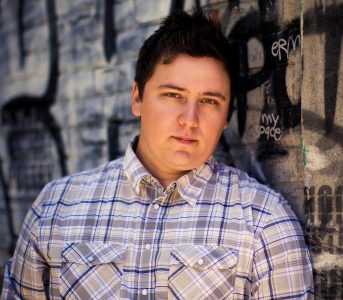
Ryan McMahon
Ryan McMahon is an Anishinaabe comedian, writer, and media maker from Couchiching First Nation in Treaty 3 Territory. Ryan jokes, talks, yells, and writes for a living.
In 2012, McMahon became the first native comedian to ever record a mainstream comedy special with the CBC, when he recorded, “Ryan McMahon – UnReserved.” Since then, he’s recorded a handful of other specials and tours independently around North America with his irreverent and nuanced storytelling comedy style. McMahon has performed his irreverent and boundary-pushing storytelling comedy style at the Winnipeg Comedy Festival, New York Comedy Festival, Just For Laughs and more.
When not standing on a stage trying to make strangers laugh he’s usually yelling into microphones making podcasts. McMahon’s podcasts (Thunder Bay, Red Man Laughing and Stories From The Land) have garnered millions of downloads globally. Thunder Bay, a podcast deep dive into the legacy of colonialism on a small city in Canada, was named to dozens of “Best Of” podcast lists at the end of 2018, including lists in the Globe and Mail, Spotify and Apple Podcasts.
McMahon is the CEO of the Makoons Media Group, an Indigenous media company committed to telling Indigenous stories to worldwide audiences. His current focus is continuing to build Indian & Cowboy, the world’s only member-supported Indigenous podcast network. More information.
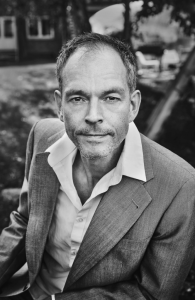
Hans Christian Post
Hans Christian Post has since 2000 worked on-off in the documentary field. First as a research assistant for Ove Nyholm during the production of the award winning film, Anatomy of Evil. Later, from 2005 till 2007, as researcher, assistant writer and production leader for the German company, WTS-Mixed Media, who in that period produced numerous documentaries for 3sat and arte.
Since 2014, he has worked independently as film maker and producer. In 2015, he finished his first documentary, Last Exit Alexanderplatz, which was followed by Whose City? in 2017. The theatre film We are here came out in early 2019, and in 2020, he completed the award winning Where·to With history?, his fourth film to date.
He teaches different courses at the Department for the study of Culture at the University of Southern Denmark, and has been a guest lecturer at several film-, arts- and architecture schools, among these The Berlage in Delft, The Independent School for the City in Rotterdam as well as The Royal Danish Academy and the Danish National School of Performing Arts in Copenhagen.
He holds a master’s degree and a PhD in Modern Culture from the Department of Arts and Cultural Studies at the University of Copenhagen. His primary field of research is cultural and urban memory. With Dresden and Berlin as primary cases, he has written extensively on the intertwining of city planning, building preservation, memory, and history politics. More information
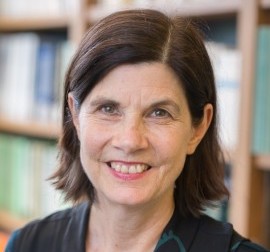
Geraldine Pratt (UBC)
My research focuses on transnational migration, labour precarity, and new geographies of dementia care. I recently completed a book (Migration in Performance: crossing the colonial present, 2019) on the travels of Caleb Johnston’s and my testimonial play, performed in Vancouver (2009), Berlin HAU1 (2009), Manila (PETA, 2013; in collaboration with Migrante International, 2014), Whitehorse (2015), and Winnipeg (2019). I have been preoccupied with how to put stories of transnational migration and family separation into circulation, with the politics of testimony and witnessing, and the obligations of witnessing and dialogue within, beyond and across national and community borders. Two new projects are underway: one on new landscapes of dementia care, the other on conditions of precarity among migrant and undocumented workers in Canada during the COVID-19 pandemic. More information.
Regina Römhild (HUB)
Regina Römhild is a cultural anthropologist and professor at the Institute for European Ethnology, Humboldt-Universität zu Berlin. Her main fields of teaching and research are critical migration and border regime studies, Europe in postcolonial, globally entangled perspective, Mediterranean & political anthropology. She established and runs the “Critical Europeanization Studies Lab” at the Institute and has, more recently, written about postcolonial and “postmigrant Europe” (in Postmigrantische Perspektiven). Her most recent book is edited together with several colleagues affiliated with the lab, entitled Europa dezentrieren. Globale Verflechtungen neu denken. Frankfurt a.M., New York: Campus, 2019 (co-ed.). Among her current interdisciplinary engagements is the collaboration with colleagues and PhD researchers in the Research Training Group “Minor Cosmopolitanisms” that aims at establishing new ways of studying and understanding the cosmopolitan project against and beyond its Eurocentric legacies. Her recent publications in English also include: “Global Heimat. (Post)Migrant Productions of Transnational Space”, Anthropological Journal of European Cultures, 27:1, 2018, pp. 27-29; (with Anja Schwanhäußer, Gökce Yurdakul & Birgit zur Nieden), Witnessing the Transition: Moments in the Long Summer of Migration. E-Book, https://www.international.hu-berlin.de/de/internationales-profil/refugees-welcome-an-der-hu/dateien-und-fotos-1/e-book-witnessing-the-transition, 2017; Beyond the bounds of the ethnic: for postmigrant cultural and social research in: Journal of Aesthetics & Culture 9 (2), 2017, pp. 69-75, DOI: 10.1080/20004214.1379850; Reflexive Mediterranisation: Mobilities, Economies, and the Cultural Remittance of Imaginaries, Migration and Social Remittances in a Global Europe, edited by Magdalena Nowicka et al., Basingstoke: Palgrave Macmillan, 2017, pp. 27-47. More information about her research can be found at the Centre of Anthropological Research on Museums and Heritage. More information.

Moritz Schramm (SDU)
Moritz Schramm is Associate Professor at the Institute for the Study of Culture at the University of Southern Denmark in Odense (SDU). From 2016-18, he has been head of the collaborative, inter-disciplinary research project Art, Culture and Politics in the Postmigrant Condition funded by the Independent Research Fund Denmark. He is a member of the independent German Council on Migration and collaborator of the SSHRC Insight Development project on Migration as Core Narrative of Plural Societies: Towards an Aesthetics of Postmigrant Literature. Among his recent publications are Postmigration: Art, Culture and Politics in Contemporary Europe. Eds. Anna Meera Gaonkar et al. transcript: Bielefeld, 2020 (forthcoming), Reframing Migration, Diversity and the Arts: the Postmigrant Condition, NY/London: Routledge 2019 (together with S. Moslund and A.R. Petersen et al.), and The Culture of Migration: Politics, Aesthetics and Histories. London: IB Tauris 2015 (edited with S. Moslund and A.R. Petersen). A complete list of his publications can be found here. More information.